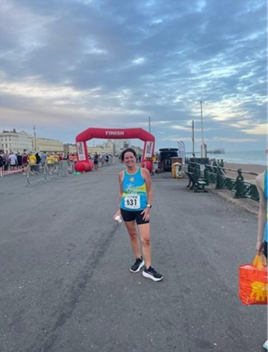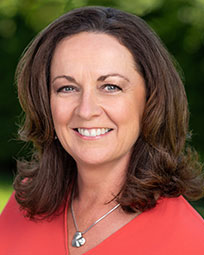The World of Work by Harry Sherrard
World Menopause Month 2025 – Lifestyle Medicine

This year for Menopause Awareness month we move away from hormone therapy and delve into what we can do when it comes to Lifestyle Medicine and our menopause journey.
What is Lifestyle Medicine?
Lifestyle Medicine refers to the changing of daily habits and behaviours to help manage menopause symptoms and to improve long-term health, rather than relying only on medication.

I am a Licensed Menopause Champion, as certified by the Menopause Experts Group (MEG) and this is an area we cover extensively when working with clients on their menopause training programmes, with individuals on a 1:1 basis and in our mission to help organisations become Menopause Friendly Workplaces.
What are the key aspects of Lifestyle Medicine?
- Nutrition: Eating a balanced diet rich in whole foods, calcium, vitamin D, and phytoestrogens (e.g., soy, flaxseed) to support bone and heart health.
- Physical activity: Regular aerobic exercise, strength training, and flexibility routines to improve mood, maintain bone density, and reduce cardiovascular risk.
- Sleep hygiene: Managing sleep disturbances with good sleep habits, stress reduction, and sometimes cognitive behavioural therapy.
- Stress management: Techniques such as mindfulness, meditation and breathing exercises to reduce hot flushes, anxiety, and mood swings.
- Avoiding harmful habits: Reducing alcohol, stopping smoking, and limiting caffeine to decrease hot flushes and protect cardiovascular health.
- Social connection: Maintaining strong social ties to reduce depression, loneliness, and stress.
Menopause and Lifestyle Medicine: My Journey
My menopause journey started about 4 years ago but came to a point last January when I had a full abdominal hysterectomy and I am now 10 months post procedure. I have personally looked at each area of my ‘Lifestyle’ and made adaptions to help me manage and recover so that I could return to the things I enjoy. I was back ‘wakeboarding’ by June (see captioned image)! But before I could return to some of my favourite pastimes, I looked at my choices and this transformed how I experience menopause, particularly post hysterectomy.

I discovered the principles of lifestyle medicine now support my health through the everyday choices I make. One of the first areas I focused on was movement. At first, I kept things gentle with walking and Pilates to rebuild core strength and stability. Slowly, I reintroduced the activities I’ve always loved, bootcamp (circuits), running and occasional cycling until I felt confident and strong enough to get back to seasonal activities such as wakeboarding and sailing. My return to the water and running a 10k in July were huge milestones for me and reminded me that menopause doesn’t have to mean giving up the sports and adventures that make me feel alive.
My diet also became a key part of this shift I now keep a close eye on my stress hormone (Cortisol) levels), my Insulin (our fat storing hormone) as well as Estrogen and the Thyroid function. I started prioritising more protein and making choices that keep my blood sugar levels balanced. Reducing my coffee to a couple of cups a day to having less alcohol was another important step, and I’ve noticed how much it has improved both my sleep quality and my overall sense of wellbeing. These changes have not just helped with energy and weight management, they have also supported my mood and recovery from exercise.
Speaking of sleep, it’s amazing how restorative it can feel when I give it the attention it deserves. By improving our sleep hygiene and being consistent with bedtime routines, we can regain more restful nights and more energetic days.
For me, lifestyle medicine during menopause isn’t about restriction or discipline, it’s about creating a foundation for vitality. I love being around the friends I exercise with, or going to a play with family or friends plus looking at ways to support my social connections and sense of community. Also having time with my husband and family plus having some solo time be it going for a walk in nature or sitting reading a book.

It’s about nourishing my body, moving in ways I love, resting deeply, being around those I am happiest with and feeling capable of living the life I want. Menopause is often framed as an ending, but I’ve come to see it as a transition with the potential for new beginnings. By embracing lifestyle medicine, I’ve reconnected with my strength, resilience and my joy in movement and health.
If you’re navigating menopause, I encourage you to explore small, sustainable changes in your daily habits. They can add up to profound shifts, not just in how you manage symptoms, but in how you feel about yourself and your future.
Ways to Keep Our Hormones Healthy
- Eat a diet rich in whole foods. Non-processed, refined, or junk food can cause problems with hormone function.
- Include small amounts of good fats, such as olive oil, coconut oil, nuts, and seeds in your diet. They help build hormones to keep our skin nourished and reduce inflammation.
- Eat a myriad of fruits and vegetables to obtain a wide variety of vitamins and minerals.
- Eat ‘good,’ slow-releasing carbohydrates like brown fibrous whole grains and vegetables.
- Avoid caffeine and alcohol as they have negative effects on both hormones and energy levels.
- Hydrate. You need water to function optimally, but the majority of people aren’t drinking enough! Track the amount of water you drink through the day.
Make Time for Self-Care
- You cannot pour from an empty cup, so it’s vital to look after yourself before you can look after others.
- Make time to pamper yourself—whether that’s booking a spa day or getting a manicure. You can also simply take a few hours to go out and do what makes you happy, such as taking a yoga class, or going for a walk or a bike ride.
Sherrards Menopause in the Workplace Training
Our training doesn’t just cover employment and legal matters, but how to make the necessary changes to lifestyle and mindset. These are extensively covered in Menopause Café sessions and in our the manager training we offer.

For information on either in-house Menopause in the Workplace training, our Menopause Cafés or 1:1 sessions please email advice@sherrardsoccupationalhealth.com or call our office on 01273 834120 and a member of our team will respond to your enquiry.
“Here’s to embracing this chapter with energy, balance, and vitality!”
Lorraine Sherrard
Back to Blogs Page
